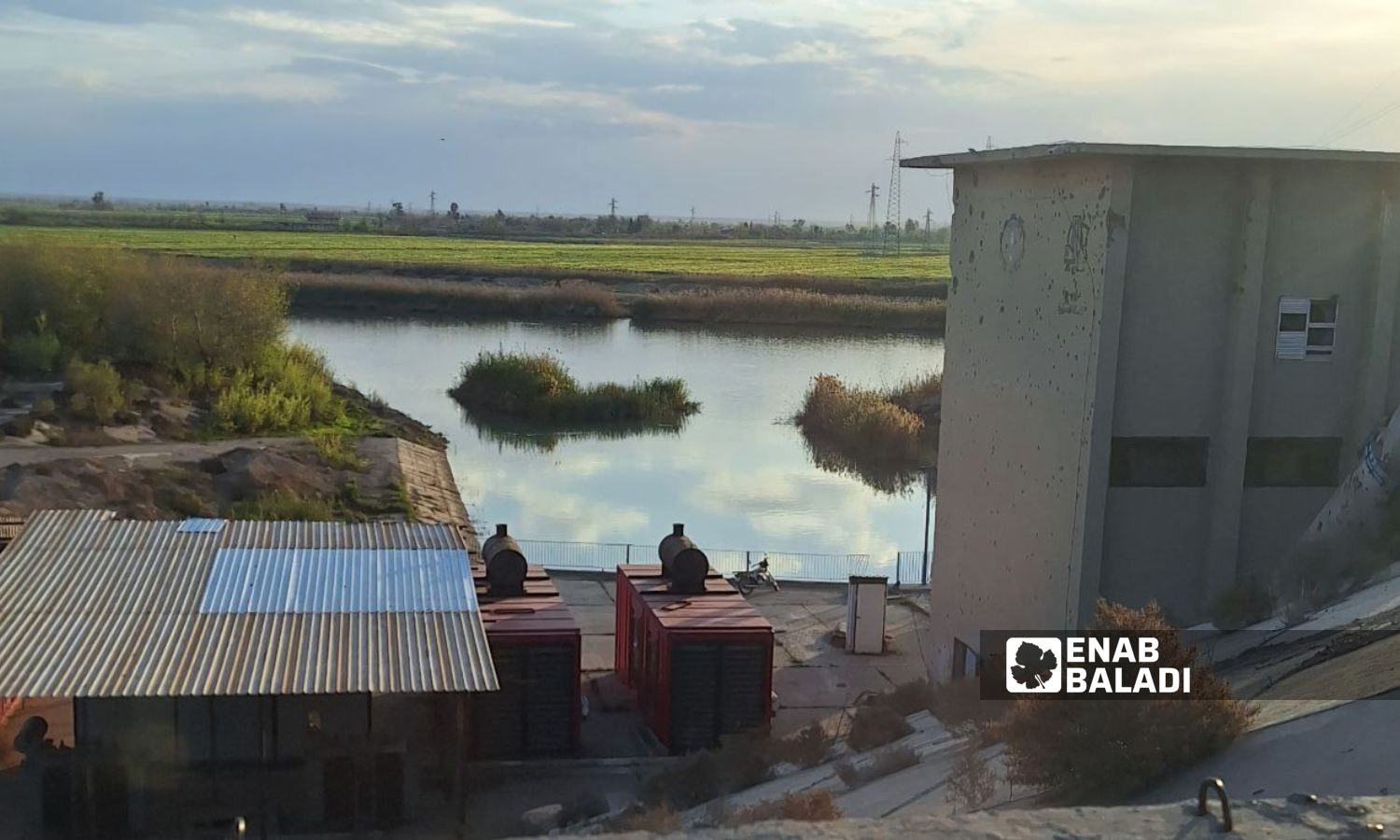



The Energy Office affiliated with the Autonomous Administration in Deir Ezzor cut off the electric power supply to more than 20 villages and towns due to violations. For years, residents of the region have been illegally drawing electricity from cables coming from areas under the Syrian regime’s control.
For the local residents, drawing electricity did not make a significant difference, but siphoning power from the main cables provided homes with electricity for a few hours a day.
Understandings between the Autonomous Administration of North and East Syria (AANES) and the Syrian regime allow the latter to provide the east of Deir Ezzor with electricity in exchange for quantities of gas that AANES exports to it through the water crossings between the areas of control.
Mohamed al-Jassem, a clothing merchant who owns a shop in al-Basira market, told Enab Baladi that the electricity situation in the towns of eastern Deir Ezzor has been irregular for years, and sometimes the region experiences power outages that last for days.
He added that, over the past years, locals have extended the electricity network at their own expense, from the main cables to their homes, which was protected by the Deir Ezzor Military Council, which was dissolved by the Syrian Democratic Forces (SDF) in the middle of last year.
Months after the council’s influence in Deir Ezzor ended due to the military operations launched against it by the SDF, the Directorate of Energy cut off the electricity supply, leaving residents with only one choice: to install a system of solar panels, which can cost up to 800 US dollars, a significant amount for the residents.
Shaman al-Saleh, a juice shop owner in the city of al-Basira, said that the power cuts would lead to increased expenses, especially for operating electric generators.
He mentioned that the cost of fuel would incur losses in his trade, as well as the high prices of oils, leading to more expenses.
The power cuts not only reflected on the traders’ lives but also created a crisis that affected the daily lives of the residents.
Samer al-Rajab, a resident of the town of al-Sabha, east of Deir Ezzor, told Enab Baladi that the power outages affected basic services such as water, in addition to disrupting the operation of phones and the internet, which have become a vital part of his daily life.
He also indicated that one of the negative impacts residents like him are experiencing is the spoiling of food due to the refrigerators stopping working.
For her part, Fadwa al-Salem, a displaced person from Homs residing in the town of al-Tawamiyah, north of Deir Ezzor, said the power outages forced her to rely on her neighbors to charge the lighting battery and use it during the night.
She noted that she could not afford the cost of purchasing a solar panel with a battery just for lighting, as it could reach 250 US dollars.
An official from the Energy Office in Deir Ezzor, who requested anonymity as he is not authorized to speak to the media, told Enab Baladi that the electricity allocation for the area extending from Jadid Akidat to Dhiban is ten megawatts.
He added that after one of the engines failed, the Energy Office cut off power from all the violating lines used by the residents, focusing the remaining electricity on water stations and centers affiliated with the Autonomous Administration, both civilian and military.
Also, according to the official, in accordance with the understandings between the Autonomous Administration and the Syrian regime, which supplies the region with ten megawatts of electricity, there had been a refusal to increase the amount to 15 megawatts.
According to the official, the power cut in the area was due to a lack of sufficient electricity to operate the water stations and provide power, which led to cutting off electricity from homes in order to operate the water stations and service institutions.
Despite the high cost of installing solar energy systems, there has been a notable increase in demand for them over the past three days, according to a solar panel merchant in eastern Deir Ezzor who spoke to Enab Baladi.
The merchant, working in the town of al-Shahil, said that there has been a recent surge in demand for buying solar power systems and batteries, although the prices of these systems and batteries, depending on their power and battery size, might be high for a significant part of the population of the region.
He explained that the cost of installing these systems in homes ranges from 800 to 1100 US dollars, depending on the size of the system and its capacity.
The merchant believes that residents are beginning to see solar power systems as a sustainable and effective solution to their electricity needs, despite their high initial cost.
if you think the article contain wrong information or you have additional details Send Correction